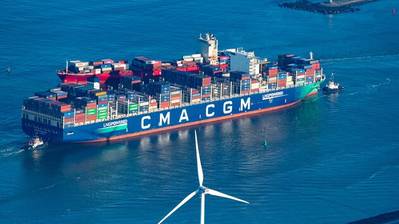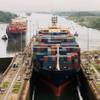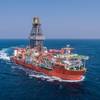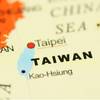Liquified Bio-Methane Bunkered in Rotterdam
The Rotterdam-Singapore Green and Digital Shipping Corridor (GDSC) partners have conducted a successful pilot for the bunkering of mass-balanced liquefied bio-methane (LBM) at the Port of Rotterdam.
A total of 100 tonnes of mass-balanced LBM was supplied by Shell to CMA CGM’s LNG-powered containership CMA CGM Tivoli.
The LBM was produced from waste-based feedstock. Shell issued a Proof of Sustainability certificate for the LBM fuel, verifying its compliance with European Union regulations. The certificate will undergo auditing by third-party organisations accredited by International Sustainability and Carbon Certification-European Union (ISCC-EU).
The pilot applied the mass balance methodology to track the movement of the LBM through the supply chain and ensure compliance with ISCC-EU certification standards, Renewable Energy Directive II and FuelEU Maritime regulations. This end-to-end certification and tracking supports the development of methodologies which will need to be consistent with the accounting framework adopted by countries under the United Nations Framework Convention on Climate Change.
This test will also provide CMA CGM with the opportunity to ensure that mass-balanced LBM is properly recognized by the authorities in relation to the EU Emissions Trading System (ETS) regulation.
A similar LBM bunkering pilot with full sustainability certification is planned at the Port of Singapore.
Established in August 2022 by the Port of Rotterdam and the Maritime and Port Authority of Singapore (MPA), the Rotterdam-Singapore GDSC aims to accelerate maritime decarbonisation and digitalisation and foster collaboration among global ports and stakeholders. To-date, the GDSC initiative has brought together 28 global value-chain partners across shipping lines, fuel suppliers, port authorities and operator, industry coalitions, banks, institutes of higher learning and knowledge partners.
Steve Esau, COO of SEA-LNG, said: “With COP 29 having recently drawn to a close, we’re delighted to see one of the key outcomes from COP 26, the Clydebank Declaration to develop green shipping corridors, bearing real fruit via the Rotterdam-Singapore corridor and liquefied biomethane (LBM).
“With SEA-LNG leading the Methane Track of the Rotterdam-Singapore Green Corridor, we have been developing pilots to test regulatory and buyer acceptance of ISCC EU certified mass balanced LBM as a marine fuel in both Rotterdam and Singapore. Our aim is to help create the commercial framework enabling LBM and other alternative marine fuels to scale.”
“This moment marks a major milestone in the alternative fuels transition and has required collaboration from across the entire biomethane value chain, from producers, terminal operators, ports, shipping lines and bunker fuel suppliers. It sets a precedent for other green corridor initiatives and provides lessons for the shipping industry’s transition to alternative marine fuels.”











